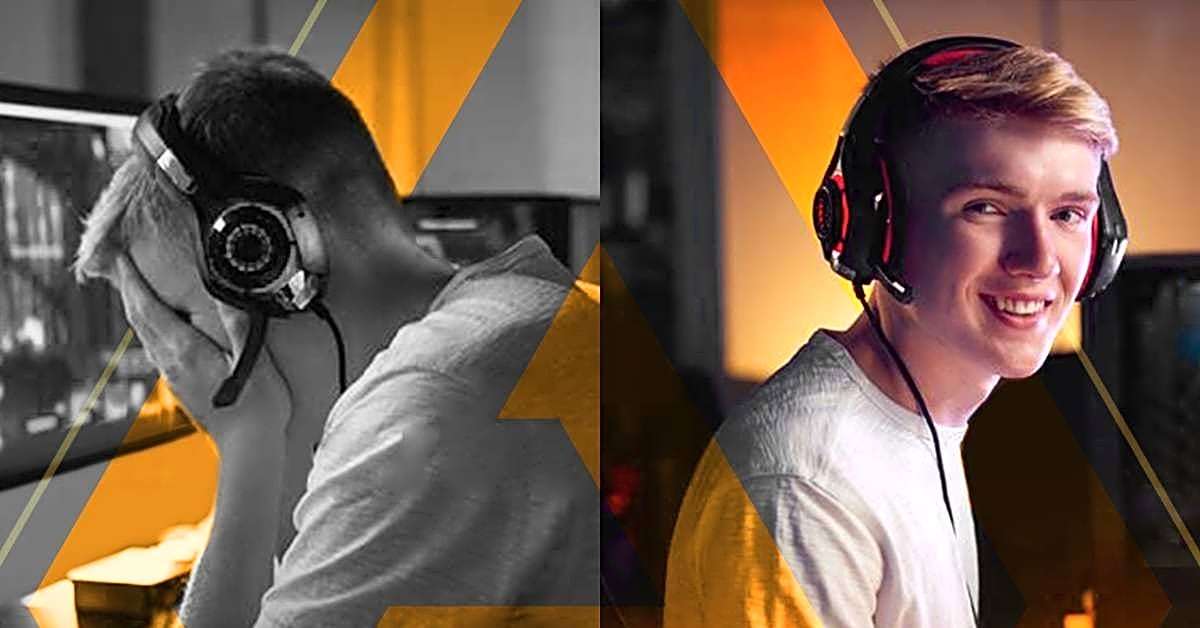In the world of competitive gaming, tilting and frustration can be major obstacles for players. Whether you’re a seasoned veteran or a newcomer to the scene, dealing with these emotions is crucial for success. In this article, we will delve into the strategies and tips for managing tilting and frustration in FPS games. We’ll explore the mindset needed to overcome these challenges and provide practical advice for improving your mental preparation. So, whether you’re aiming to climb the ranks in a competitive FPS game or simply looking to improve your overall gameplay, read on to learn how to effectively deal with tilting and frustration.
First person shooter games can be intense and challenging, causing many players to experience tilting and frustration. These emotions can be triggered by a variety of factors, including getting killed multiple times, losing a match, or even just feeling overwhelmed by the fast-paced gameplay. When left unchecked, tilting and frustration can lead to poor decision-making and negatively impact your performance.
In order to effectively deal with tilting and frustration in FPS games, it is important to first understand their root causes. One major cause is the competitive nature of these games, where players are constantly trying to outdo each other and come out on top. This can create a high pressure environment, making it easy to get frustrated when things don’t go as planned.
It is also important to recognize the signs of tilting and frustration in yourself and others. These may include increased heart rate, muscle tension, negative self-talk, and impulsive decision-making. By being aware of these signs, you can take steps to manage these emotions before they escalate.
One effective technique for staying calm and focused during gameplay is deep breathing. Taking deep breaths can help regulate your heart rate and reduce muscle tension, allowing you to stay in control of your emotions. Additionally, taking breaks can also be helpful in managing tilting and frustration. Stepping away from the game for a few minutes can give you time to relax and reset.
Aside from managing your emotions, there are also strategies you can implement to improve your gameplay and reduce frustration. This may include practicing aim and movement, learning game mechanics, and studying map layouts. By honing your skills and understanding the game better, you may be less likely to get frustrated when things don’t go your way.
Having a positive mindset is also crucial in dealing with tilting and frustration in FPS games. It is important to remember that losses are a part of the game and not let them affect your mood or mindset. Instead, try to focus on the lessons learned from each match and use them to improve in the future.
In the competitive gaming scene, stress is inevitable. However, there are ways to manage it and prevent it from contributing to tilting and frustration. This may include setting realistic goals for yourself, not comparing yourself to others, and focusing on your own progress rather than your ranking.
For example, if you find yourself getting frustrated after getting killed multiple times in a row, it may be helpful to take a break and practice your aim in a non-competitive environment. This can help you regain control of your emotions and improve your performance when you return to competitive play.
In conclusion, tilting and frustration are common emotions experienced in FPS games, but they can be managed with the right mindset and strategies. By understanding their root causes, recognizing the signs, and implementing techniques such as deep breathing and taking breaks, you can stay calm and focused during gameplay. Additionally, by improving your skills and maintaining a positive mindset, you can reduce frustration and continue to excel in the competitive gaming world.
Recognizing the Signs of Tilting and Frustration
use HTML structure with tilting and frustration for main keywords and
It’s important to recognize the signs of tilting and frustration while playing FPS games. These emotions can negatively impact your performance and cause you to make careless mistakes. Some common signs of tilting and frustration include:
- Becoming easily angered or irritated
- Feeling overwhelmed or stressed
- Making impulsive decisions
- Feeling a lack of control
If you start experiencing these emotions, it’s a sign that you may need to take a break. It’s important to listen to your body and mind and know when it’s time to step away from the game. This will allow you to come back with a clear and focused mindset, ready to tackle any challenges that come your way.
Strategies for Improving Your Gameplay
One of the most effective strategies for improving your gameplay in FPS games is to practice consistently. This may seem like a no-brainer, but it is often overlooked by many players. The more you play, the more you will become familiar with the mechanics and controls of the game, and the better you will become at executing them.
But it’s not just about mindlessly playing for hours on end. To truly improve, you need to be intentional with your practice. Set specific goals for yourself, whether it’s mastering a new weapon or perfecting a certain technique. You can also watch replays of your matches to identify areas where you can improve and then focus on those in your practice sessions.
It’s important to remember that improvement takes time and patience. Don’t get discouraged if you don’t see immediate results. Keep practicing and your skills will gradually improve.
By understanding the root causes of tilting and frustration and implementing these strategies, you can become a better player and enjoy your gaming experience even more. Remember to stay positive, take breaks when needed, and practice regularly to see improvement.


